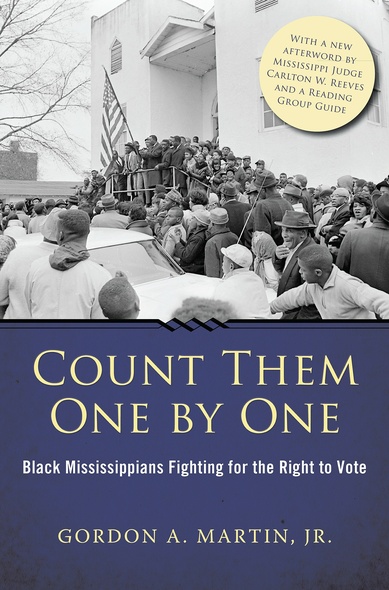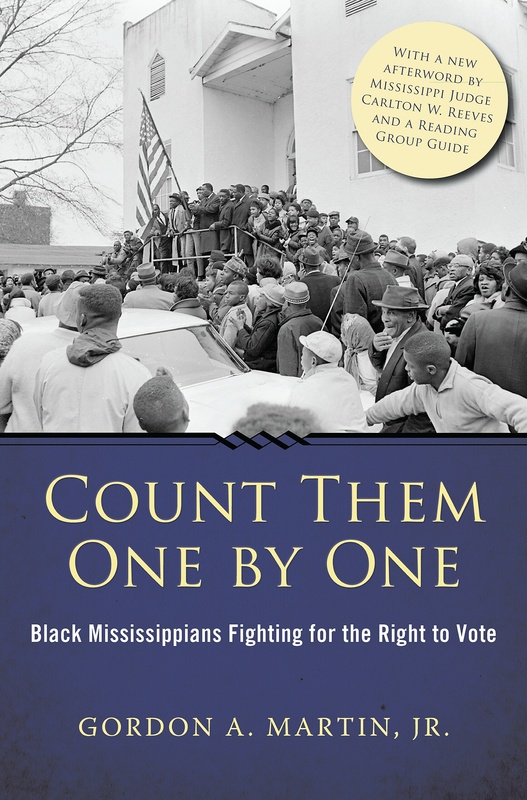Count Them One by One
Black Mississippians Fighting for the Right to Vote
In 1961, Forrest County, Mississippi, became a focal point of the civil rights movement when the United States Justice Department filed a lawsuit against its voting registrar Theron Lynd. While 30 percent of the county's residents were black, only twelve black persons were on its voting rolls. United States v. Lynd was the first trial that resulted in the conviction of a southern registrar for contempt of court. The case served as a model for other challenges to voter discrimination in the South and was an important influence in shaping the Voting Rights Act of 1965.
Count Them One by One is a comprehensive account of the groundbreaking case written by one of the Justice Department's trial attorneys. Gordon A. Martin, Jr., then a newly minted lawyer, traveled to Hattiesburg from Washington to help shape the federal case against Lynd. He met with and prepared the government's sixteen courageous black witnesses who had been refused registration, found white witnesses, and served as one of the lawyers during the trial.
Decades later, Martin returned to Mississippi to find these brave men and women he had never forgotten. He interviewed the still-living witnesseses, their children, and friends. Martin intertwines these current reflections with vivid commentary about the case itself. The result is an impassioned, cogent fusion of reportage, oral history, and memoir about a trial that fundamentally reshaped liberty and the South.
What a gripping book Count Them One by One is. It brings to life a fifty-year-old civil rights case in Mississippi that helped start our nation on the road to racial democracy . . . For me, this book is a stirring journey in time . . . Count Them One by One could be a great movie. It has heroes and villains, and it teaches lessons of freedom and justice. Those are lessons we should learn, again, and so should our children.'
--Armand Derfner, Charleston Post and Courier
Martin's gift as a storyteller invites readers to understand the heroes and villains and why they acted as they did . . . He makes the story lively and suspenseful.'
--Choice, American Library Association
A wonderful new book! . . . I'm sure it's going to touch a lot of people.'
--Robin Roberts, Good Morning America
A masterful combination of historical memoir and scholarly research.'
--John Dittmer, professor emeritus of history, DePauw University, author of Local People: The Struggle for Civil Rights in Mississippi





